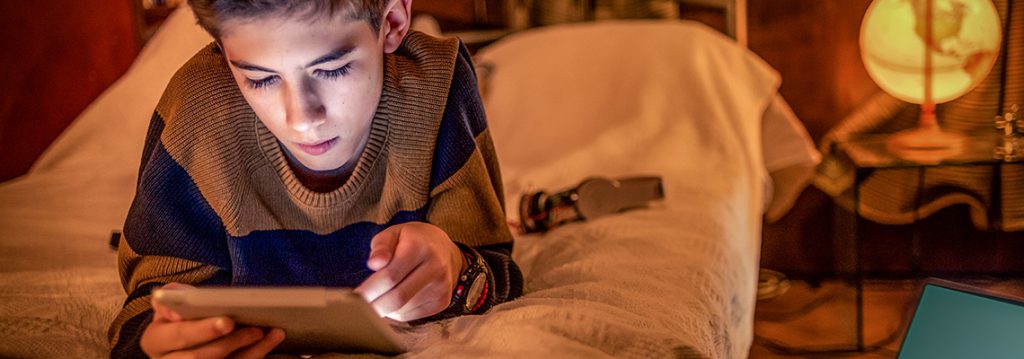
You thought raising TEENAGERs was tough, raising SCREENAGERs is even more challenging!
A recent PEW Research Center Survey reports nearly 9 out of 10 teens themselves think excessive screen time is a problem, and 6 out of 10 say it is a major problem.
At the same time, loneliness is increasing, particularly for younger generations. This is despite the fact that many teenagers appear glued to their smart phones. The health effects of loneliness are considered to be comparable to smoking!
Social media has essentially put typical adolescent development on steroids. Increased focus on peer status and approval, social comparison, and feedback-seeking, which are standard for teenagers, become amplified on social media. The 24/7/52 availability and “score-ability” of on-line social interactions is changing the experience of being an adolescent.
Social media, in and of itself, is neither “good” nor “bad”, but there are some things parents should keep in mind:
- Social media is the new norm, so completely avoiding it is not realistic, nor would it allow “typical” peer interactions to occur. Instead, have a conversation with your teen about what they see as the pro’s and con’s of social media use (and overuse).
- Maintaining face-to-face interactions is important for social development. Family dinners (with a no-phone-at-the-table rule) are an ideal time to stay connected. Commuting time can include a “no-earbud” rule, to allow for conversation between parents and kids.
- ”In real life” interactions, through sports, music, drama, religious youth groups, part-time jobs, volunteering, or other prosocial groups, can protect teens from the negative effects of social media.
- Shutting off (and possibly turning in) phones at night will help teenagers get sufficient sleep, which helps to regulate mood, appetite, and behavior.
- Turning off all screens at least 30 minutes before bedtime helps the sleep-wake cycle regulate and increases the ability to fall asleep more rapidly.
- *Putting phones away while driving saves lives!
- Teens can make a game out of *not* using their phone when together (e.g., if at a restaurant, everyone silences and stacks their phone, the first to pick up when the stack vibrates pays for the meal).
- Consider adopting the motto “Phones off, friends on!”
- What teens watch on their screens also matters. For example, the show “13 Reasons Why” has been linked to increased completed suicides in adolescents. While the majority of teens who watched this show did not make a suicide attempt, teens who already feel vulnerable are at increased risk. Know that what your teen is exposed to does matter!
- Encourage watching shows as a family, or at least in a public place within your home, rather than your teen watching alone in their bedroom. Monitor and discuss with your teen what he or she is watching.
- Parents can set a good example by not focusing on their own phones when with their family.
Resources
https://infoaboutkids.org/relationships/screen-time/
Citation
Fristad, M. (July 27, 2019). Screen Time Tips for Parents. Retrieved from https://infoaboutkids.org/blog/screen-time-tips-for-parents